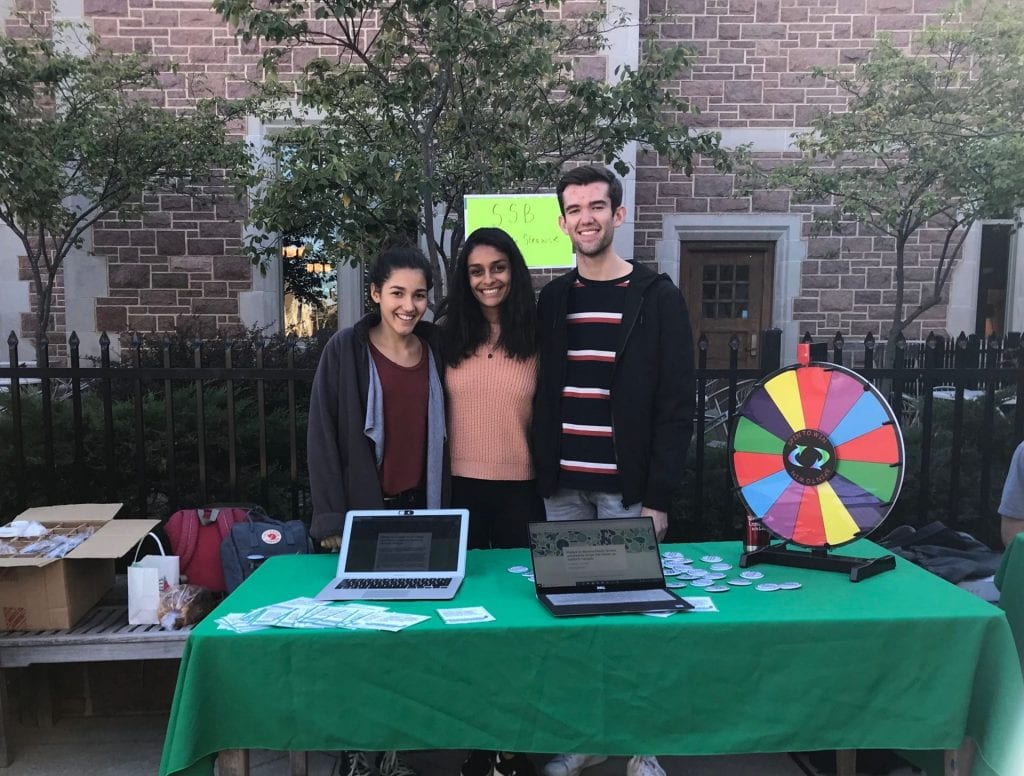Every day, between 170 million and 390 million straws are used and thrown out in the United States (according to a recent New York Times fact check). Overall, over 8 million metric tons of plastic makes its way into our oceans every year, killing marine life that ingests it, introducing dangerous toxins into the food chain. Student Sustainability Board (SSB) hopes that WashU can #stopsucking and play its part to help make a change.
Last year, after learning about the growing and international movement to reduce and eliminate plastic straws, including New York City’s law to ban straws by 2020 and pending legislation in a number of US states, SSB member and current senior Ivan Ginsberg decided he wanted to take on straws at WashU. Current sophomore and SSB Vice President of Public Relations Claire Irawan joined him, and the team of two is leading the charge on the Danforth campus.
“I remember thinking this is such a simple change that so many people can make, and it can have such a big impact,” Irawan said.
The campaign began with reusable metal straw giveaways; SSB has hosted three in the past year and given away a total of approximately 300 metal straws. Sharing With A Purpose (SWAP) also hosted a giveaway and straw-holder making event, handing out an addition 110 straws, and the WashU Green Ambassadors (WUGAs) and Campus Book Store have sold them, too.
“The giveaways were the first thing I thought of,” Ginsberg said. “College kids like free stuff, and it creates awareness really quickly. From there, it can lead to a less wasteful chain of thought: ‘Use a metal straw instead of a plastic straw. Don’t use plastic straws because they are plastic, which is waste. Try to avoid waste.’”
This fall, SSB created a petition to advocate for the removal of plastic straws from Danforth dining halls and a reduction of single use plastics overall, which has been signed by nearly 600 students, staff, and community members so far. SSB is working closely with Dining Services to explore strawless solutions, such as offering straws only upon request, a route that many institutions and restaurants have already taken. At the beginning of the fall semester, educational signage about the impact of straws was posted at School of Medicine campus, and Bon Appétit, the primary food service provider across WashU, announced this May that intends to ban plastic straws company-wide.
“The ideal goal would be to remove the little bins with all the straws from all the dining locations on campus,” Irawan said. “Obviously there are people who do prefer or need plastic straws, or at least a straw alternative. We are currently working with Dining Services to identify appropriate options for those situations, but our main goal is to eliminate the perceived need of plastic straws on campus.”
Irawan and Ginsberg are hopeful that this project could build on the campaign that successfully eliminated the sale of plastic water bottles on campus a few years ago.
Ginsberg explained that changing the status quo in institutions is always challenging because it takes persistence and patience to convince people to adopt new habits. “That’s why WashU diners should change — these are the choices we can make now in order to ensure we don’t create a planet full of plastic,” he said.
Students are hopeful that the reduction of plastic straw usage could be an important step in eventually creating a greater shift towards a campus culture of zero-waste.
This article was written by Carmen Vescia, Food Associate at the Office of Sustainability.
